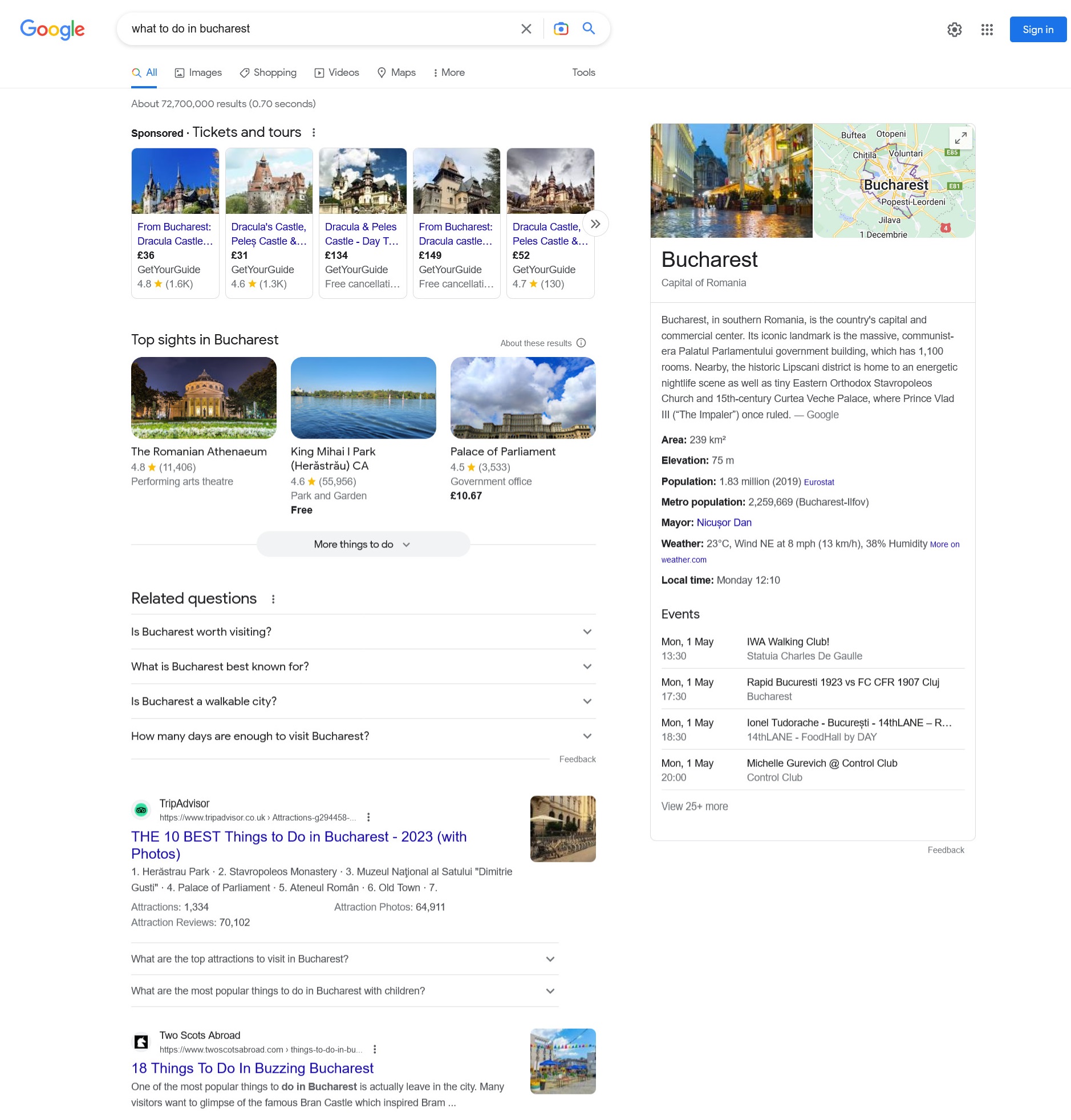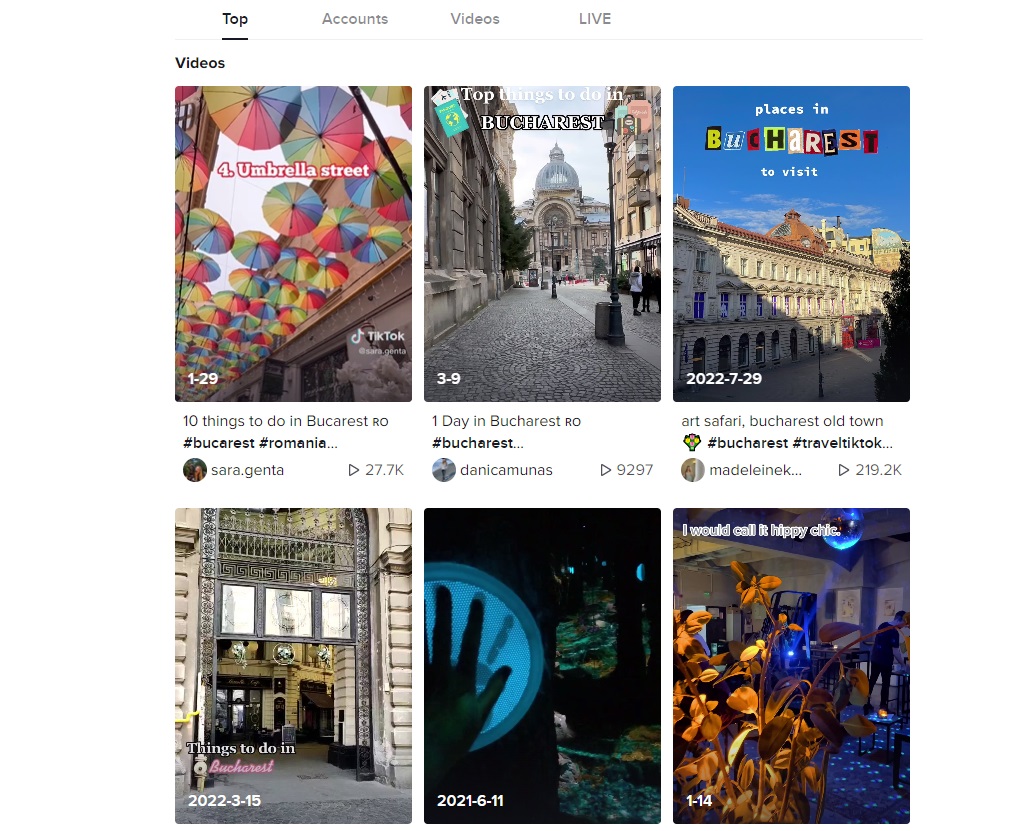

How AI and TikTok Are Reshaping the Way We Search
Written By Otilia Crizbasan | 7 June, 2023
Moving beyond the Google-centric view to conversational search
Welcome to the exciting and ever-changing world of technology. New developments are constantly reshaping the way we search and access information. With chatbots getting smarter and social media an inseparable part of our daily lives, there’s a buzz about how these fascinating advancements might influence our search behaviours.
So join us as we explore the significant impact of AI and TikTok on users’ online search behaviours and their effect on the ever-evolving keyword landscape.
The generational shift of searching habits
What do users do when search engines fail to provide the information they are looking for online? Behind this question lies one of the latest shifts in searching habits.
According to a TikTok study, 37% of users discover new products and services on TikTok. As a key component of the new search trends, the app particularly resonates with a younger demographic. In fact, Gen Z displays a preference for social networks, like TikTok, over traditional search engines when searching for brands online.
Prabhakar Raghavan, a Google senior vice president, said at a technology conference in July: “In our studies, something like almost 40% of young people, when they’re looking for a place for lunch, they don’t go to Google Maps or Search. They go to TikTok or Instagram.”
Why do younger generations choose social media over other sources for online research? Social media offers the type of content they want. So they find short, snappy video content with social proof (like real testimonials or reviews) friendlier and easier to digest than lengthy, text-heavy brand websites or online publications.
It’s not just social media that revolutionises the search landscape. When evaluating the search landscape, you must look beyond just social media. Marketplaces are also a crucial starting point for many e-commerce-driven users.
According to a US survey by Jungle Scout, 61% of US consumers start their online shopping journey on Amazon, compared to 49% who start on a search engine. Even though this trend isn’t new, it’s often overlooked when discussing how users search online.
Why are people turning to TikTok for answers?
Consider this example. You are a man in his 20s, looking for something entertaining to do in Bucharest over the weekend. And your interests include photography, cycling and dancing.
If you type “what to do in Bucharest” into Google, you’ll get the following results:

The first section is a carousel of ads. They all have pictures of Dracula’s Castle, which is not even in Bucharest. And for a user in your position, these results are not relevant to your search.
The second section shows some of the ‘Top sights in Bucharest’, including the Romanian Athenaeum, Herastrau Park and the Palace of Parliament. But given your interests, these may not necessarily serve your personal search intent.
A large amount of real estate on the right of the SERP is taken up by the knowledge panel. In some searches, this contains useful information to read at a glance, but the elevation of the city and its population is hardly relevant for you in this case.
And finally, we get to the organic SERP – the web pages that are, in theory, most relevant to your specific search. The first result is ‘The 10 Best Things to Do in Bucharest’, followed by ‘18 Things to Do in Buzzing Bucharest, which are common listicle-style articles that tend to rank in Google. Navigating these posts is time-consuming, with listens often outdated and hard to trust.
Now here is the exact same search in TikTok. All are videos you can watch in about 30 seconds created by people of a similar demographic to you.

This time, the app recommends an array of activities to engage in:
- The largest thermal spa
- Grand Cafe Van Gogh
- Art Exhibitions
- Umbrella Street
- Rent a bike in Herastrau Park
- Nightclubs
The creator’s experience is showcased in each point along with a fantastic soundtrack. It’s understandable why a 20-year-old would prefer this browsing experience over sifting through the congested SERPs on Google.
AI and the rise of conversational search
Not long ago we wrote about the potential of ChatGPT to become the next big search engine. We are still keeping an eye on it and its unpredictable future.
It’s quite interesting to see how people tend to ask chatbots more complex questions than they’d normally ask Google. In fact, asking a chatbot a basic search engine question might feel like we’re not fully using its full potential.
We generally expect chatbots to connect the dots and combine logic in more sophisticated ways. Take this famous example of a user who wondered if an IKEA loveseat would fit in their 2019 Honda Odyssey. Previously, you might have needed several Google searches to find the car and furniture dimensions, along with a calculator.
However, with AI, we’re looking for a more integrated, friendly and fast response. Check out how ChatGPT is handling similar questions in 2023:

We’re seeing an exciting trend in search where the use of long-tail keywords is on the rise for obtaining specific information. Search engines are also adapting to provide direct responses through zero-click search spaces and other SERP features.
ChatGPT has developed ‘prompts’ that mirror super long-tail keyword searches or even act as multiple searches in one. These prompts supply marketers with a treasure trove of valuable information. Drawing from the IKEA example, we can now determine the customer’s intent, their preferred product, and even the car’s brand, make, model, and dimensions. It’s truly impressive to see.
3 ways AI is changing search behaviour
- Shift from keyword-based to natural language search
There has been a significant shift from traditional keyword-based search queries to natural language queries. Users can now ask questions and express their needs using everyday language, making the search process more accessible and enjoyable for everyone.
- Comfort with sharing personal information
With the ongoing advancements in AI, users are becoming more comfortable discussing personal information or seeking advice from chatbots. As a result, this increased level of trust and openness can lead to more personalised and relevant search results, as users share more context and detail with the AI models.
- Evolving expectations
As AI continues to improve search experiences, users have come to expect more accurate, relevant, and personalised results. They now anticipate search engines to understand their intent and preferences, which has raised the bar for the quality of search results and user satisfaction.
3 ways social media is changing search behaviour
- Focus on visual and video results
Social media platforms, particularly TikTok, have popularised short-form video content, influencing users to seek visually engaging and easily digestible information. This has led to a shift in search behaviour, where users are more likely to search for and consume content in video or image formats rather than traditional text-based sources.
- Influencer-driven searches
The rise of influencers on TikTok, has impacted how users discover new products, services, or trends. Users often rely on influencers for recommendations, leading to searches that are driven by influencer endorsements or content, rather than purely organic exploration.
- Preference for user-generated content
Social media platforms have popularised user-generated content, which often feels more authentic and relatable to users. This has influenced search behaviour by encouraging users to seek out content created by real people.
Final thoughts
All in all, AI and TikTok are making waves in the digital world, and they’re changing the way we search and discover information online. It’s incredibly fascinating (and somewhat scary) to witness how they’re influencing user behaviour and transforming the search experience.
Now is the time for your brand to engage with these behavioural shifts and technological developments. The question is – can you truly say that you’re ready for the future of search?
With emerging technologies changing the search landscape, we are always looking at what’s next for Luminr and search as a whole.
Get in touch with our team to discover how we can help you dominate search.





